We often hear the stories of soldiers during the Revolutionary War, but what about the families these men left behind? One day, you’re sitting in your cozy cabin, the venison stew simmering in the cast-iron pot on the hearth, with the efforts of your canning and preserving stacked neatly on shelves in the loft above. You’ve been doing a great job caring for your family.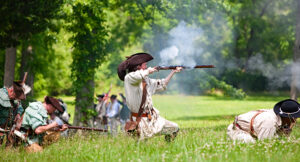
And suddenly, war breaks out. Your husband rushes off to join the militia to fight against tyranny and leaves you behind. He takes the only weapon the family possesses. Your nearest neighbor has family in the city of Richmond and leaves to move in with them. The neighbor over the hill supports the British.
What are you going to do? How will you provide meat for your family? Are you safe alone on the homestead? Such was the case for many who had no family in a town to move in with. These are questions women in the late 18th century had to answer. It was probably one of the toughest choices they faced. Many families had no option but to follow behind the army.
This was my topic for the school children visiting the Wilderness Road Museum today.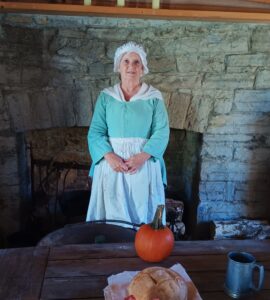
George Washington did not approve of their presence and was often outspoken in his dislike of the situation. He expressed his concerns that the presence of women in the camps would undermine military discipline and order. He also feared the stigma that these women were prostitutes, and he was keen to avoid any appearance of impropriety that would tarnish the army’s reputation.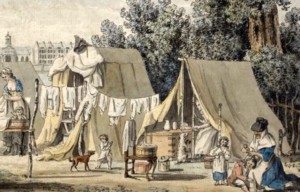
Logistically, Washington was concerned about the already stretched-thin supply lines and worried about the need to provide food and shelter for the significant number of women and children. He believed this would contribute to shortages for the men. Additionally, he felt too many non-combatants interfered with the army’s ability to move and would slow them down.
On several occasions, Washington issued proclamations that limited the number of camp followers. He wanted to ensure that only the wives of soldiers and a few other women fulfilling necessary roles, such as nursing and laundry, remained with the army.
However, he also understood that they served a purpose. Having their families nearby so that the men knew they were safe significantly reduced the number of those who deserted to go home and check on the families they left behind. It was better to have a soldier who had no worries and remained to fight.
Recognizing them as a necessary evil, in 1777, Washington issued an order regulating the number of women allowed to follow the army, specifying a certain number per regiment and requiring them to contribute to the military by performing duties such as washing and nursing. For this work, the women were permitted rations for themselves and young children. Skilled nurses were usually paid.
I often hear claims that women did the cooking and sewing for the soldiers, and there are a few documented cases of them doing such for high-ranking officers. However, the typical soldiers often went unpaid, and the rations they received were meager. It is doubtful they gave up their food to pay a woman to cook or do mending for them.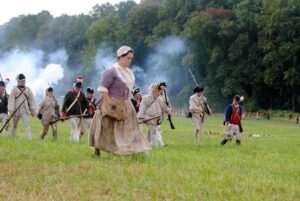
Prior to 1775, nursing fell to fellow male soldiers. However, in that year, General Horatio Gates requested that General Washington allow women to provide care for his wounded soldiers. That July, Washington put together a plan that would allow one nurse per every ten patients at a rate of up to eight dollars per month.
An essential but arduous task was laundry. Uniforms were often filthy, especially after fighting through muck and mire, which exposed not only the men but the women to diseases such as dysentery and typhus. Washing was a strenuous and time-consuming task, but it was vital for hygiene and the upkeep of the soldiers’ appearance.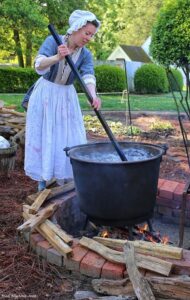
Water was brought from streams or wells by buckets and heated over the fire. The boiling water was then poured into large wooden tubs. Soap made from animal fat and lye was stirred in, and the clothing was added to pre-soak to loosen dirt. This soaking also helped kill lice and bacteria and was vital for sanitation. Next, the garments were scrubbed by hand or later with a washboard to remove the last of the dirt. Sometimes, coarse sand might be used for this purpose. The items were then rinsed, wrung out, and hung to dry, which required sunny days in order for the heavy uniforms to dry.
While doing these jobs and receiving rations and sometimes wages, it was a hard life for the women and their families. Conditions were often overcrowded, make-shift shelters where several families slept together, and there was little comfort or privacy.
But what choice did most of them have?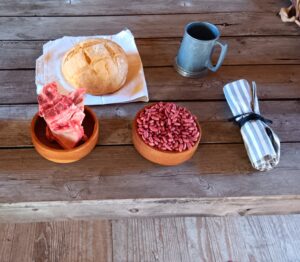
As I spoke to the schoolchildren today, many stared at my display of their rations: 1 lb of meat, 1 lb of beans, and 1 lb of bread, which represented the daily amount provided, and wondered if it was worth it.
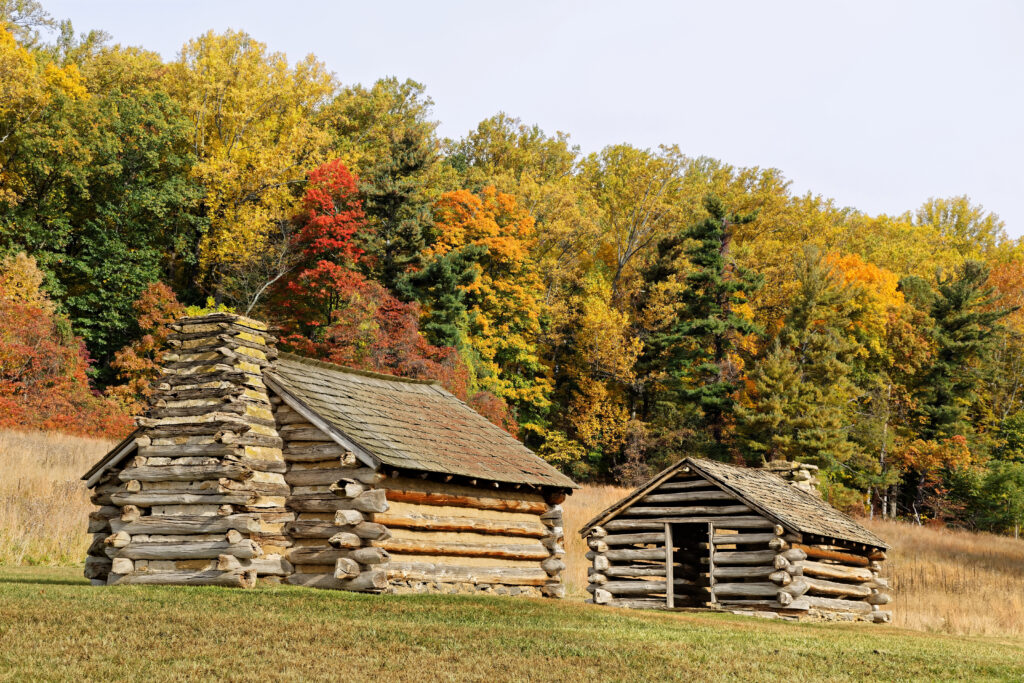
Another great article Carol. Great information I haven’t seen before. Keep up the great work. Can’t wait to get your next book.